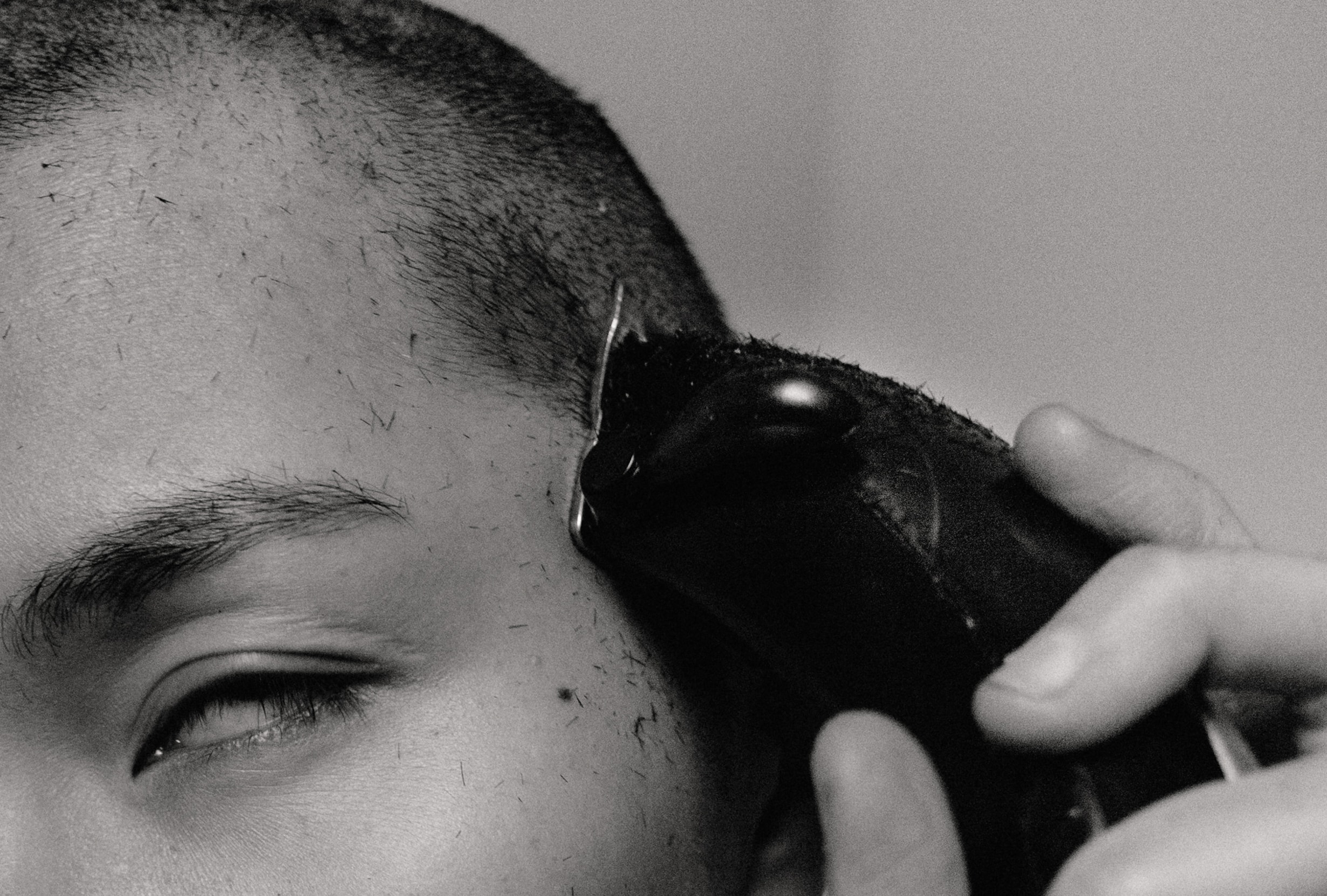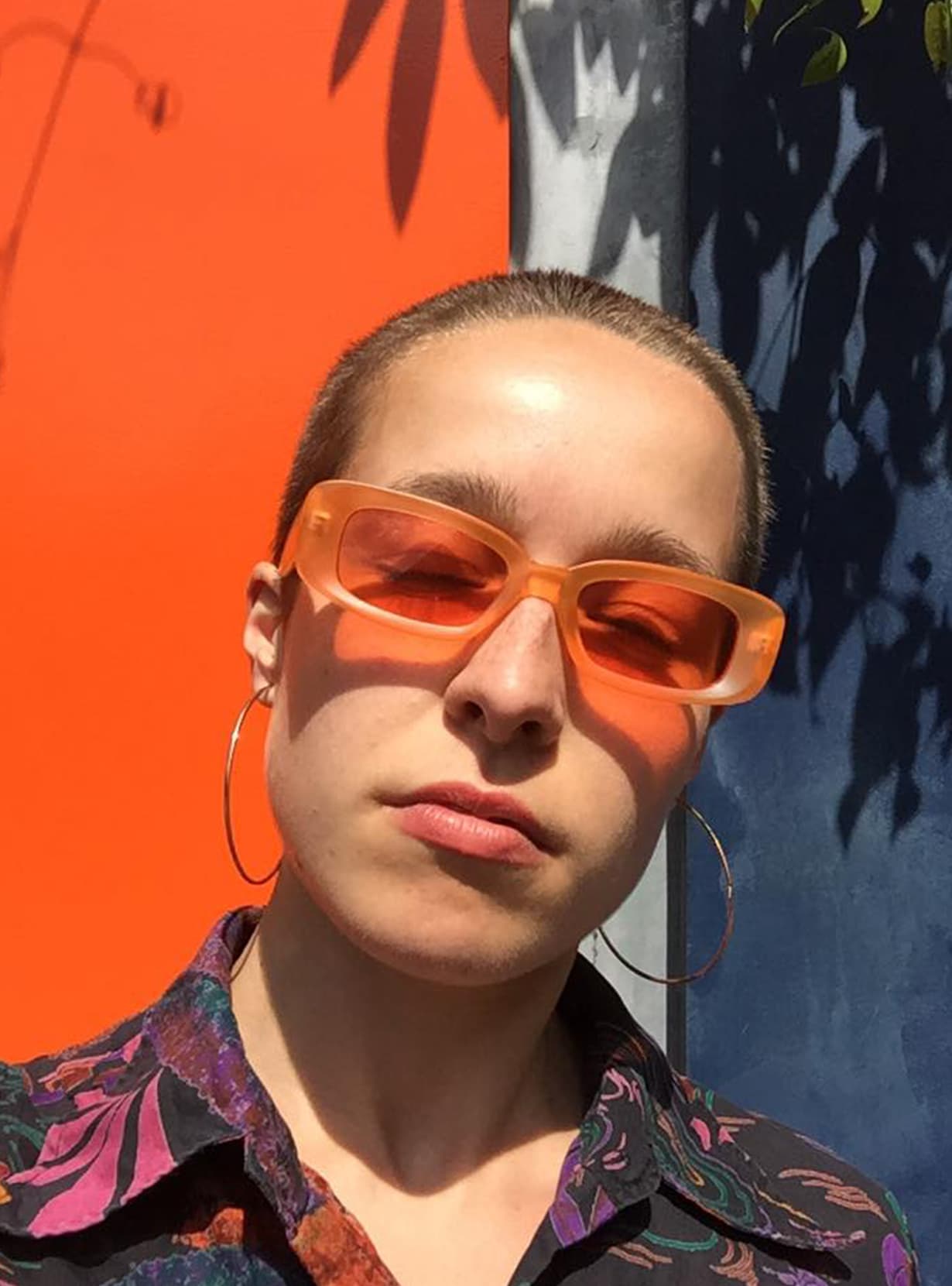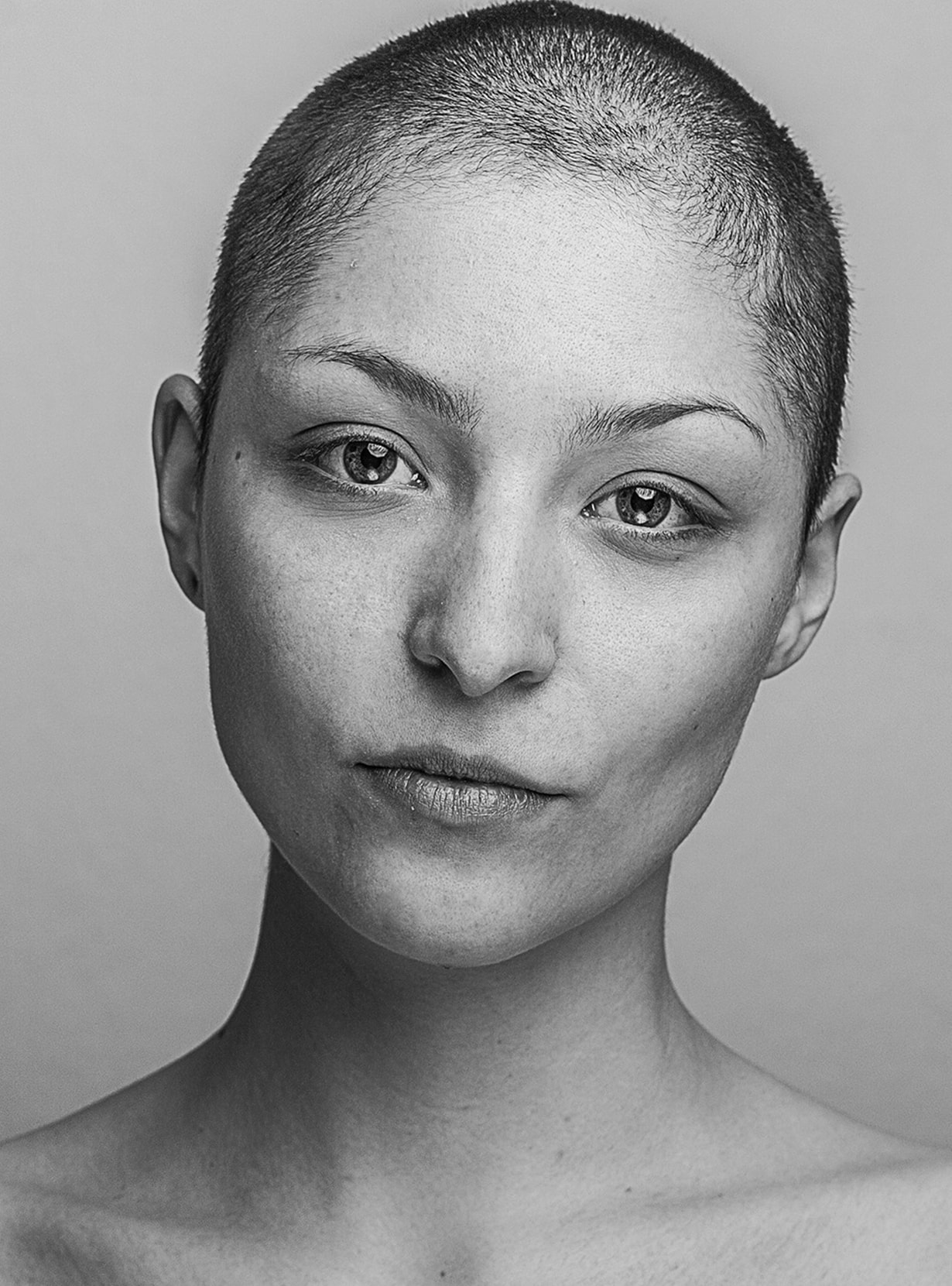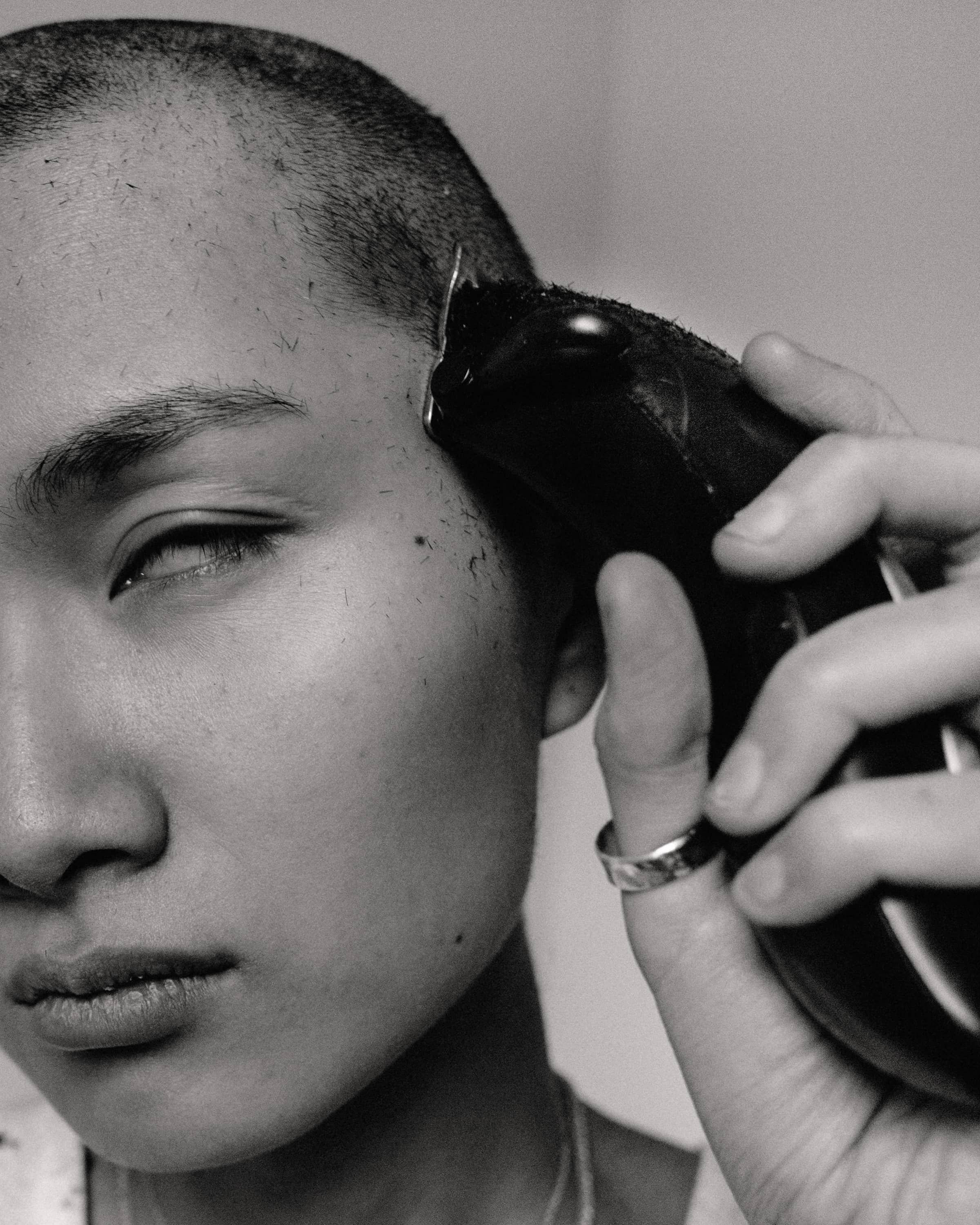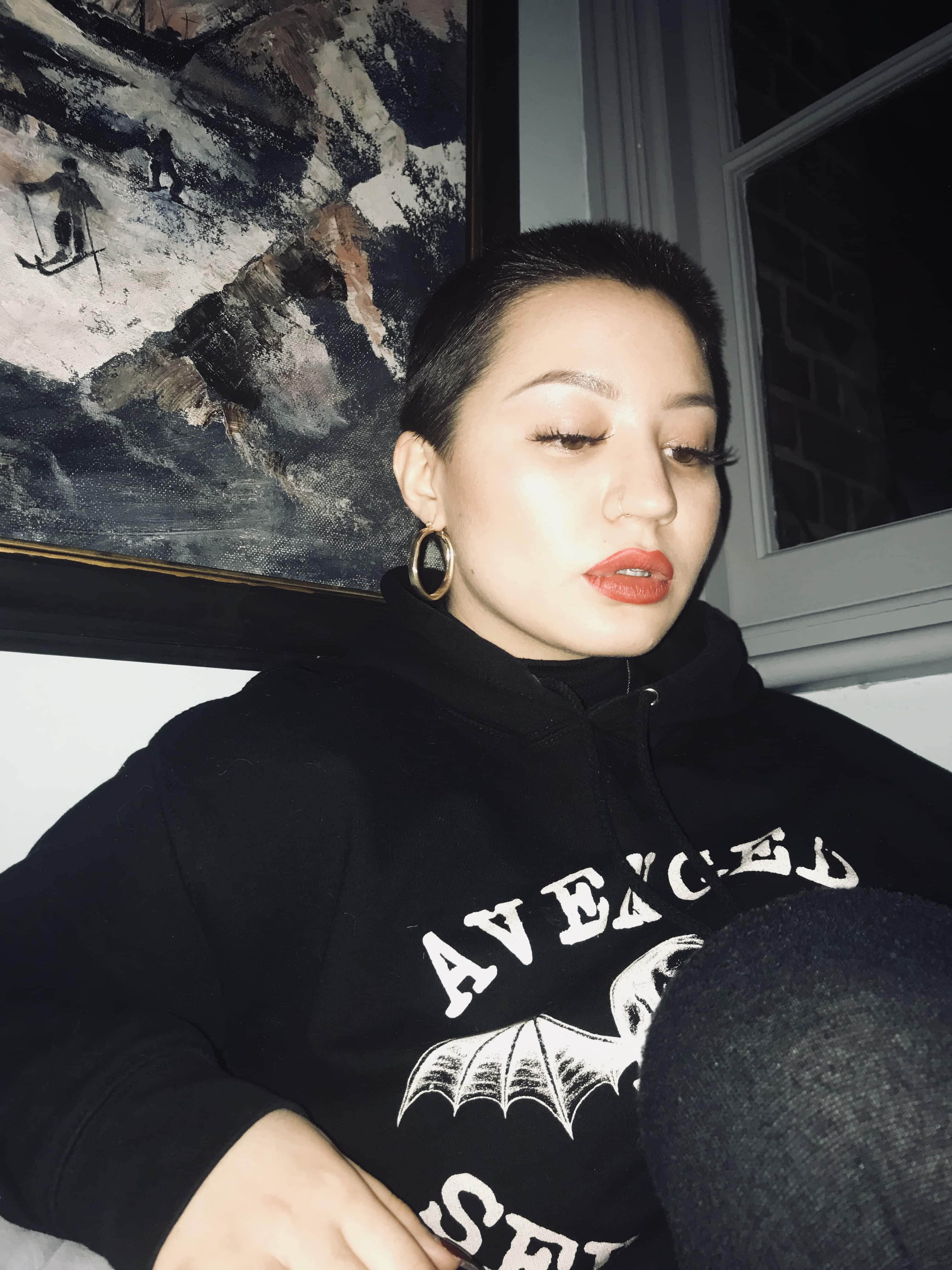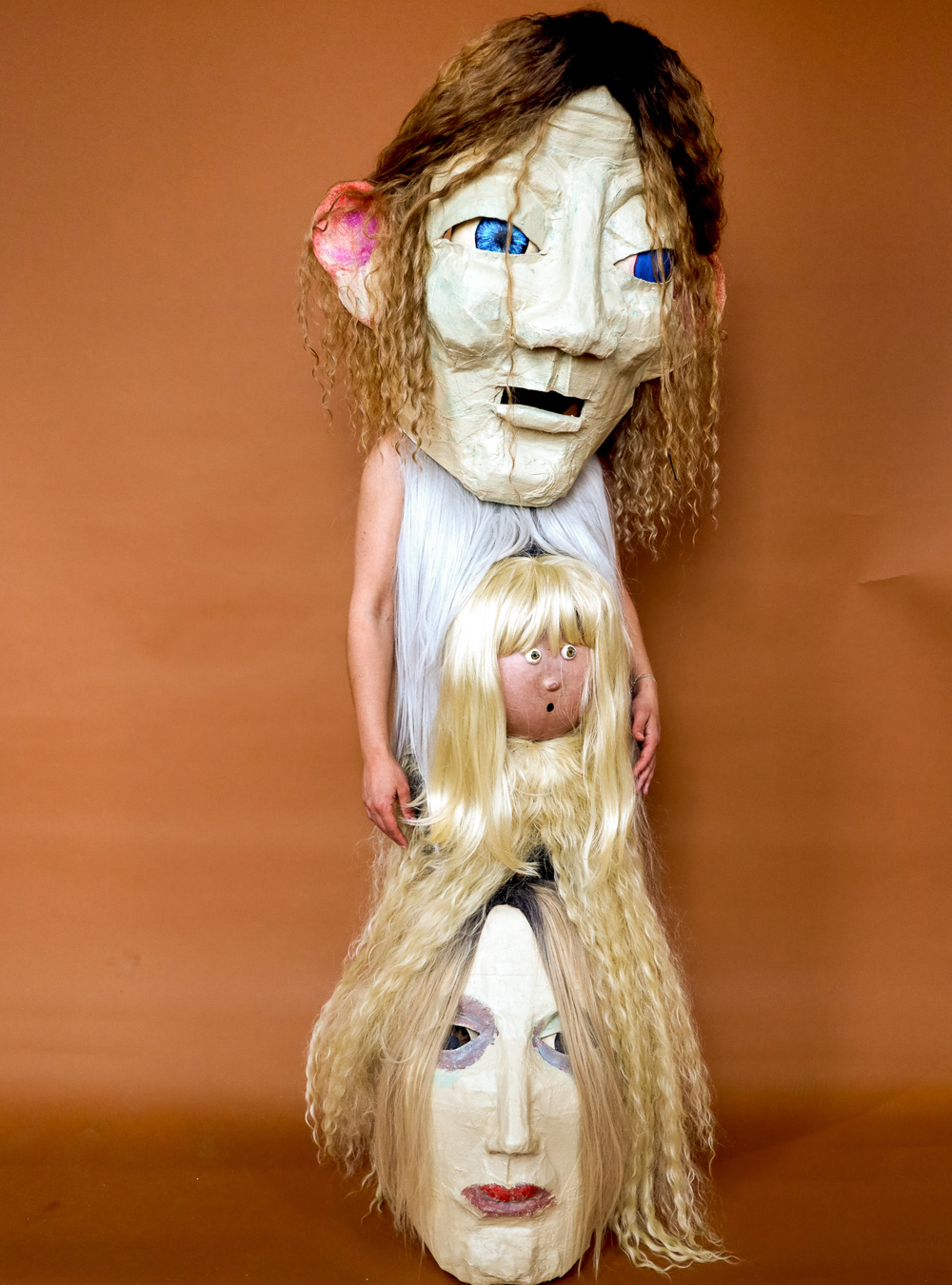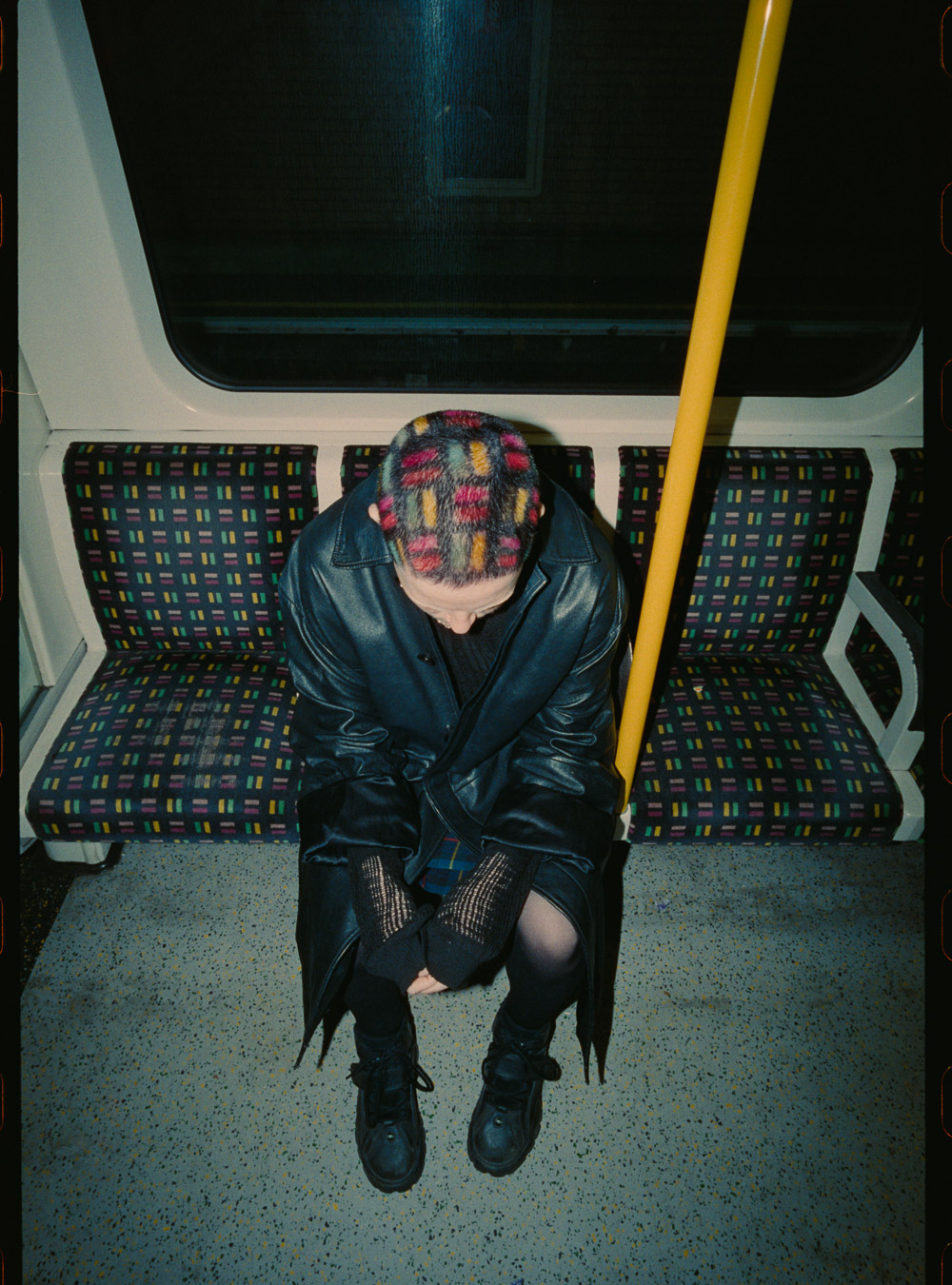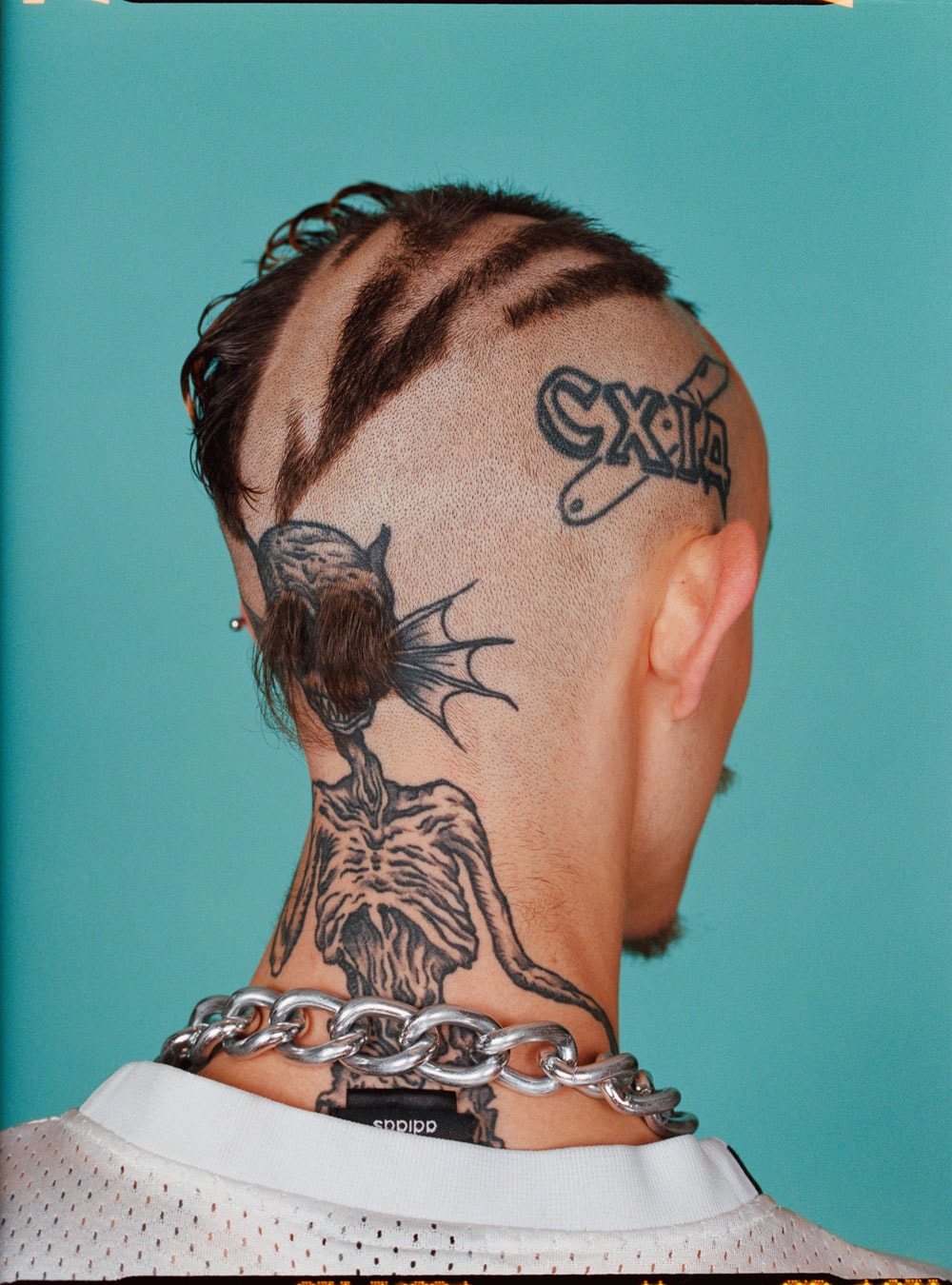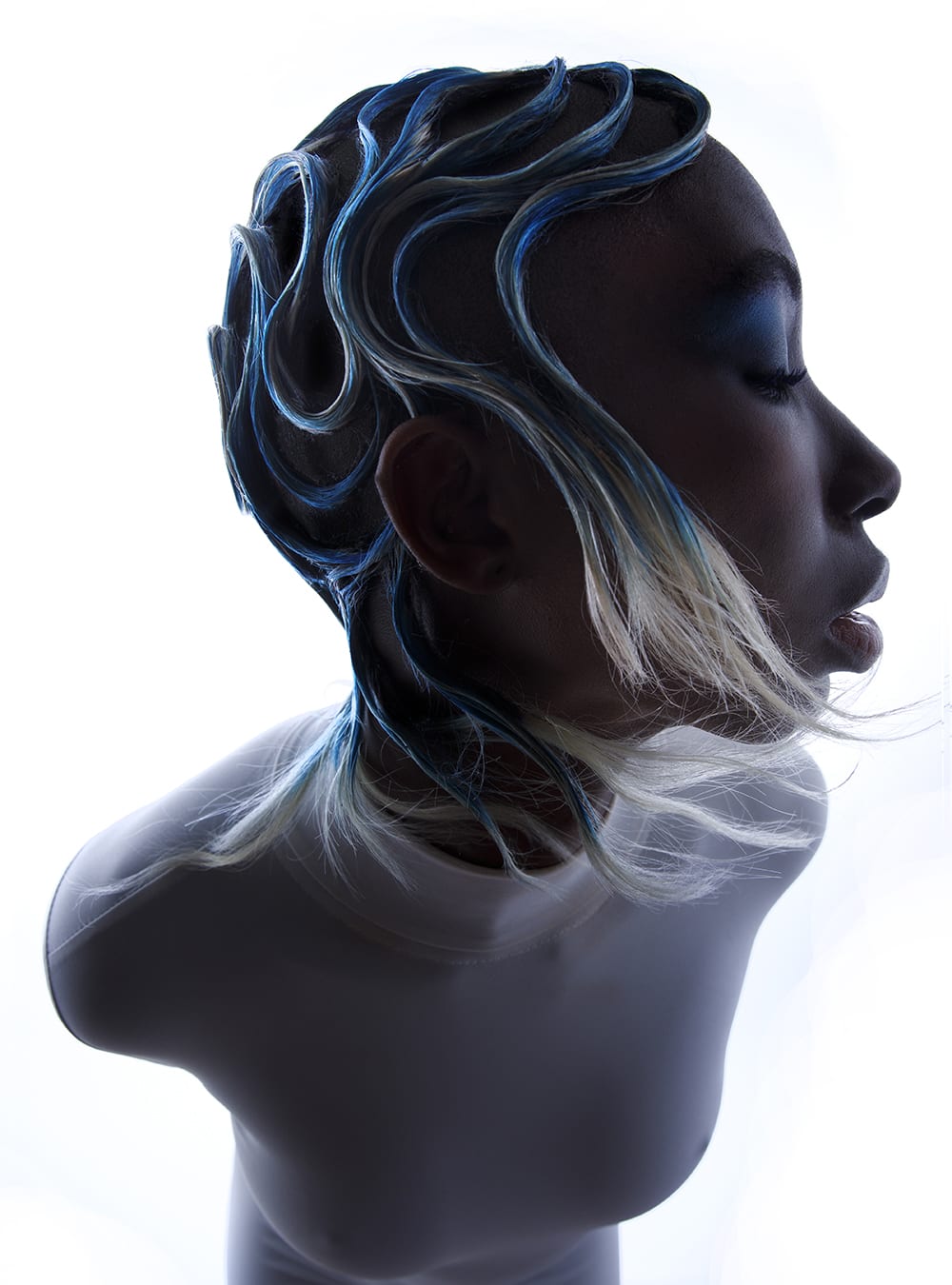- Degendering hair one buzz cut at a time
- Degendering hair one buzz cut at a time
- Degendering hair one buzz cut at a time
ART & CULTURE: Degendering hair one buzz cut at a time. In honour of the one year anniversary of shaving her hair off, Katharina Lina reflects on the experience.
Words: Katharina Lina
Cover Photography: Elaine Kwok by Thai Hibbert
Photography: Imke, Sally, Jenny
Let’s be honest, who hasn’t, at one point, played with the idea of getting a clipper out and just shaving their head? Many dream of doing it at least once in their lifetime, as a bucket list kind of thing. To quench their curiosity, or to do something that’s kind of extreme but still safer than jumping out of an airplane. In honour of the one year anniversary of shaving my hair off, I reflect on this experience from my halfie cisgender perspective.
"Shaving my head was not only a conscious act to challenge society's still prevalent, violent binarisation of the sexes, but certainly also a successful attempt to balance out my inner self as well as my outer appearance."
I fondly remember sitting on a stool in the bathroom, patiently fighting through the semi-painful experience of my mother doing my hair before elementary school. She didn’t offer much variety in hairstyles, it was either a ponytail or two pigtails; but they were always perfectly tight and neat. Hair symbolises many things, it carries sentimentality, and haircare can create a moment of bonding between parent and child. Hair, especially women’s hair is treated as a prized possession, and why wouldn’t it be — it takes time to grow, and energy and money to take care of.
Go to your local newsstand and take a look at essentially any magazine cover and the subject’s hair is most likely flying voluminously in sexy artificial wind. Or a certain KJ-Klan having gained monstrous profits from their hyper-feminised and sexualised portrayals and endeavours including selling luscious hair extensions; or even the recognisable washing-hair-equals-sexual-pleasure shampoo commercial. A woman’s hair is synonymous with her beauty, femininity, and sexuality, and thereby inherently subject to the male gaze and gendered power dynamics.
Over the last couple of years pop culture saw a rise in femme bodies shaving their heads: Kate Hudson, Amandla Stenberg, Kristen Stewart to name a few. Actress and feminist Rose McGowan shared that she was sick of “long, glossy Kardashian-esque hair that says, ‘fuck me, big boy’.” And that she never quite grew comfortable with long hair because it made her feel like she had a plant on her head and a sex target on her back. In her memoirs I’ll Never Write My Memoirs, the legend and icon that is Grace Jones explained “My shaved head made me look more abstract, less tied to a specific race or sex or tribe. I was black but not black; woman, but not woman; American, but Jamaican; African, but science fiction.” Alternatively, Emma Gonzalez, the 2018 Stoneman Douglas High School shooting survivor turned gun-control activist shaved her head simply because “It’s Florida. Hair is just an extra sweater I’m forced to wear.”
I thought long and hard about this decision; there were so many things to consider. Before cutting it all off, my hair was the longest it had ever been; I frequently received compliments and was often asked for hair advice. I was proud of my long, shiny hair, and it was definitely a source of my confidence. But then I started to be wary of it. I’m into makeup, I’m into fashion, and I express myself accordingly. My hair acted as the cherry on top of this sundae of conventional hyper-femininity, and it was just too sweet for me. I realised I didn’t feel comfortable presenting myself in this traditional feminine way, that ticks certain boxes in order to be deemed conventionally attractive by the general public, or more significantly, men.
"I decided to shave my head because I believe that leaving your comfort zone even for a while can be beneficial. My hair, or lack thereof, ended up being very difficult for my family who kept telling me that 'hair is a woman's greatest jewellery.' Nevertheless, I still think of it as an empowering decision. Not being able to hide my face definitely increased my self acceptance."
I would be lying if I said I wasn’t also worried about feeling ugly without it – I’m a woman so I should at least try to be beautiful, right? But I thought, even if I do find myself ugly, I will have no choice but to accept it and eventually learn to love it. I worried about whether my face was the right shape for short hair, or whether I’d be better off losing weight before shaving my head. You see, my hair had shielded me from these kinds of thoughts up until then and I was curious to get to know myself underneath my protective veil. Body positivity became an important factor, and as an extension to discovering my queerness, I liked the idea of not presenting traditionally female, and I guess, sticking it to the status quo, or whatever.
I called my mum to tell her about my intentions and she shrieked in shock and tried to persuade me not to do it. The thing is, my mother is Chinese and grew up under Mao’s reign with traditional and strict notions of what a woman is and should be, and a culture that generally values conformity and fitting in over the expression of individuality. She did give me her blessing eventually — it was a reluctant and backhanded “Ok do what you want, you’re the one that has to walk around like that” but it was a blessing nevertheless.
"Shaving my head was the best thing I've ever done to myself. It allows me to fully embrace my masculine and feminine energies, and harness to my advantage. It gives me strength and confidence to express who I really am, albeit going against social norms and gendered expectations. I can only feel at ease and complete living life in my own terms."
I remember mentioning my plans of buzzing off my hair on my Instagram story, and immediately the replies started coming in. Interestingly, the opinions were mostly dividable by gender. My female and femme-presenting friends and peers were supportive and encouraging, whereas my male friends were almost unanimously against it and told me not to do it. I was initially put off by the fact that even my gay male friends were playing into this heteronormative narrative of telling me, a woman, how to look, in order to please their eyes, rather than take into account – and respect – all of my thoughts and reasonings. But it was the hair that broke the camel’s back, and one day I decided to get the clippers out and just do it.
Yes, I had to get used to it at first, but I loved it from the second I saw myself in the mirror. Sometimes, especially in social situations, my fingers would automatically reach to my head, a nervous hair-around-finger twirl embedded in my muscle memory, but I’d find nothing to twirl. So I learnt to stop hiding behind my hair, and it actually ended up making me feel powerful and fearless.
My hair didn’t just affect my appearance but also my behaviour. I’d strut down the street, and I’d still get cat-called, but noticeably less, which was a great bonus. And even when I did get harassed, I felt confident enough to look them in the eye and flip them off, whereas before I would have automatically played a subordinate female role, pretended not to have heard them, and just tried to disappear as quickly as possible with my head low.
Buzzing my hair off was hard because I loved feeling feminine and simultaneously hated feeling feminine as long as it meant that I played by patriarchal rules. But getting rid of it made me feel more in touch with myself and now I feel less inclined to have hair just because I should, or because I define my feminine beauty by it. Plus my mum ended up really liking it and asked me if she should try it too! One year later, here I am, slowly pushing hairs out of my scalp again. As for now, only time will tell whether I will keep growing it or shave it off again, but the great thing is that I’m no longer scared of being less of a ‘woman’ or ‘ugly’ without it.
- ANTHROPOLOGY OF HAIR
- ANTHROPOLOGY OF HAIR
- ANTHROPOLOGY OF HAIR
- ANTHROPOLOGY OF HAIR
- ANTHROPOLOGY OF HAIR
